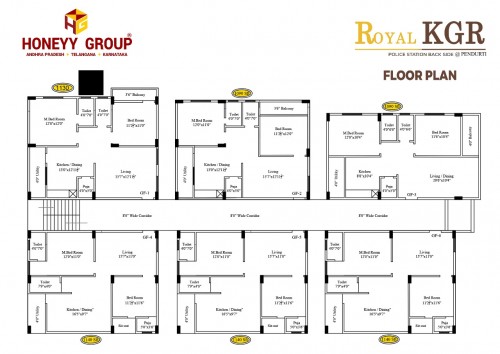Real Estate A-Z You Should Know
What should you know before buying a property or making a real estate investment? There are many key factors that play a role in a real estate transaction. Real Estate investment or purchase can be confusing at times.
Real estate investment can help diversify your investment portfolio. It can provide substantial appreciation, steady cash flow, tax advantages, and competitive risk-adjusted returns, making it a sound investment.
Here’s a list of real estate terminology you should know before buying a home or investing in real estate.
Amenities- Features that make the property desirable. Buyers would not want to buy any property with their hard-earned money. Amenities can include larger square footage, open kitchen, move-in closets, play area, gym, pool, lounge, grocery store, roof-top access, etc.
Built-Ins- Built-ins are features that come with the ready-to-move-in property. These may be common to all buyers or may be charged extra by the builder. They include features like permanent shelves, modular kitchen, move-in closet, etc.
Common Area- Buyers who purchase properties in gated communities or townships may have to share certain areas that are common to all residents. Such areas include the gym, pool, play area, walking tracks, elevators, etc.
Down Payment- Down Payment is the amount that is paid by the buyer in advance. The rest of the payment may be done in parts or as a whole. The range of down payment can be anywhere between 3% - 20%.
Escrow- It refers to a third-party account as determined by both the buyer and seller. This ensures that the buyer’s money is safe and also that the seller can get the money once the work is 100% complete. The seller is guaranteed that the buyer is not defaulting on the payments after purchase.
Fair Market Value-Before buying any property, the buyer can bring in a surveyor who measures the property area and calculates the fair market value as per the market price of the unit area. This gives an approximate idea of how much that property is going to cost the buyer.
Goods & Services Tax- As per the new GST regime, it has been reduced to 1% on the affordable housing segment without ITC. However, GST is not applicable on the resale of the old property or purchase/sale of land, or a completely constructed property.
Home Equity- Home Equity is the difference between the value of a property and how much the resident owes on his mortgage. When paid in full, the buyer gains full equity on the property.
Insurance- Home Insurance is the insurance policy you buy for your home. It can cover the expenses on damage repairs and maintenance. Though the Home Insurances have not gained popularity in India, they are mandatory in some countries for homeowners.
Joint Venture- A builder may collaborate with another builder for the construction of a project. This sort of understanding or agreement between the two to complete the project together may be termed as a joint venture.
Loan-to-Value Ratio- Financial institutions calculate the loan-to-value ratio as they are not willing to provide the entire value of the property as a loan. They only provide the amount absolutely necessary for the buyer.
Mortgage- The financers or lenders need a guarantee that the home-buyers repay their loan amount in full. This is the reason they mortgage the property and release the documents once the payment is made full and final on the loan.
New Construction- There are multiple types of properties, but a newly constructed project always sells like a hot cake. There are many advantages to buying a new property, like updated amenities, new technologies, etc.
Old Construction- The properties which have seen some wear and tear are always the best. They are tried and tested and if you are lucky, you may even get them for a fair price.
Promissory Note- The buyers have to sign a promissory note along with the buyer’s agreement. This is a guarantee that the buyer will pay his mortgage in full and in its entirety.
Quotation- The buyer can obtain a quotation of the property from the realtor or real estate agent or builder. This will help them understand the components which are under sale and the price of each of them.
Realtor- While many use this term synonymous with real estate agent, a realtor is much more than that. A realtor has proven training and experience, their resources have mutual benefits for both buyers and the sellers.
Surveyor- Buyers typically want to know every last detail about the property they are going to purchase. A surveyor does just that, gathering the much-needed information from the buyer. The same goes for sellers who want to list their property for sale.
Transaction- The buying and selling of a property and the activities that are performed in closing the deal are called transactions. The exchange of property between the seller and the buyer comprises a real estate transaction.
Under Value- The listed property may be valued for a price lesser than it actually sells. This may be due to the fact that there may be hidden charges, or the property may have seen some substantial damage, etc.
Valuation- The true value of a property is important for financing during the purchase and investment analysis. It also helps you in estimating the exact value of the property for sale or for purchase.
Wholesaling- Real estate wholesaling is nothing like retail wholesaling. It is the most profitable real estate investment strategy. The investor makes a contract with the seller and approaches a potential buyer for the purchase of the property. Here the catch is that the investor must be able to sell the property before the contract with the seller comes to an end.
Real estate investment is an easy way to wealth but it requires planning, focus, and expertise. Finding the right real estate expert to aid and advise you is the best way to invest in real estate. Investor awareness is the key to successful real estate investments. Improving a purchased property to gain substantial profits is a sub-set of real estate investment called real estate development. This will provide the realtors an opportunity to improve the selling price as well as benefits the buyer with improved facilities at the cost of the seller.
Buying and owning real estate is an investment strategy that is both satisfying and profit-making. One of the primary ways to get benefits from real estate investment is to buy property for rentals. The other ways include house-flipping, in other terms, buy a damaged or dilapidated property, improve it at your own cost and sell it at a profitable price. There are many such strategies in real estate investment that are slowly becoming popular in India.
The above basic terminology will help you understand the nuances of real estate investment and help you plan better strategies for your real estate investment.
Go on, start investing.







.jpeg)